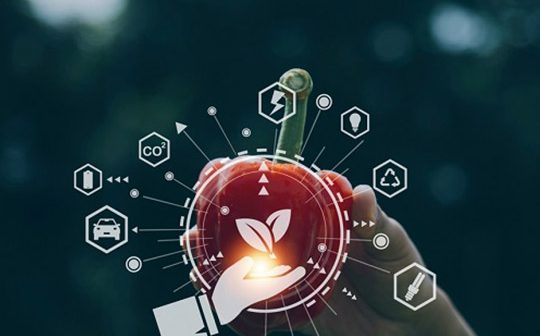
Geotab has released its 2022 Sustainability and Impact Report, Unlocking the Power of Data for a Sustainable Future, which outlines the company’s environmental, social and ethical impact, and highlights how data intelligence is a key driver of success in the carbon reduction journey.
The report also includes examples of how organizations in the transportation sector are starting and managing carbon reduction initiatives using data intelligence to inform their decision-making and transition, something Geotab believes is critical in Australia for the transport sector to address emissions and make progress towards their sustainability targets and not get left behind.”
Accelerating decarbonisation in transportation industry
“The transportation sector has one of the biggest global opportunities to truly impact the climate crisis. At Geotab, we are learning from our own efforts and feel privileged to share this knowledge, supporting our customers and partners with their sustainability goals through connected transportation solutions and data insights,” said Neil Cawse, CEO, and founder of Geotab. “This report demonstrates our commitment to continuously improving our sustainability practices to make a positive impact on the planet.”
Australian transport sector needs to accelerate to meet 2030 Sustainability Agenda
At the end of last year, Australia increased and legislated its emissions reduction targets of 43% by 2030 and net zero by 2050. To achieve this, all sectors must play their part, including the transport sector, which currently accounts for 18% of the country’s total carbon dioxide emissions, the third largest source of greenhouse gas emissions with the highest rate of growth.
With a limited supply of light and heavy Electric Vehicles (EV) and a National EV Strategy now in the works, the Australian commercial transportation sector must consider all ways it can play a more active role in the country’s sustainability agenda, with the switch-over of the Telstra 3G network representing including harnessing the power of telematics and data intelligence to add value to its fleet and overall business.
The imminent shutdown of Telstra’s 3G network presents a momentous opportunity for the transport industry to upgrade to 4G and 5G and reap the financial and sustainability benefits. Fleet managers in Australia can take effective action towards reducing global emissions by transitioning to electric vehicles and adopting other sustainable fleet practices like idling and fuel usage reduction, making this a once-in-a-generation opportunity for both sustainability and financial gains.
According to Sean Killen, the Vice President for Latin America, Asia and Australia/New Zealand at Geotab, “Australian fleets are currently lagging behind their global peers in their decarbonization efforts. However, this is expected to change due to the impending shutdown of Telstra’s 3G network in 2024. Killen emphasizes that investing in connected transportation solutions and data insights in the near term will not only help achieve sustainability goals but also lead to financial benefits such as lower fuel and maintenance costs, and reduced CO2 emissions across the country.”
Fleet sustainability is a win-win
For many fleets, sustainability is proving to have financial advantages. Electrification studies featured in the report show the potential to save millions of dollars through lower fuel and maintenance costs while reducing CO2 emissions. A recent Geotab survey of U.S. fleet professionals found that 63% of respondents confirmed that their fleet sustainability data helped their organization reduce operating costs in the past year.
Driving forward on our own sustainability journey
With a target of net zero emissions by 2040, Geotab is on its own sustainability journey, minimizing the environmental footprint of its operations and supply chain across all three scopes and developing sustainability-focused products and solutions for fleets. Geotab is developing a supplier program to increase supply chain sustainability. At the end of 2022, 50% of Geotab’s top 10 suppliers (by spend) were reporting their environmental data to CDP. Geotab’s goal is to have 100% of its top 10 suppliers make a public commitment to reduce greenhouse gas (GHG) emissions by 2030.
Report highlights:
- In November 2022, Geotab was the first dedicated telematics company to receive validation from the Science Based Targets Initiative (SBTi) for its emissions reduction targets.
- Geotab was awarded a Bronze medal from EcoVadis, ranking in the top 50% of companies scored by EcoVadis according to their criteria.
- Geotab joined the UN Global Compact, the world’s largest corporate sustainability initiative.
- Updated Geotab GO Recycle Program providing take-back services for customers in North America and the EU.
- Research collaborations demonstrating the potential of electrification and accelerating EV adoption at scale, including the North American fleet electrification study and Profitable Sustainability: The Potential of European Fleet Electrification.
- Next-generation STEM program with over 200 participants in the company’s Internship and Co-op programs.
- Geotab opened the Automotive Innovation and Research Hub in High Wycombe, England, announcing a new milestone in Electric Vehicle Fleet Management with data intelligence solutions for over 300 EV makes and models.






